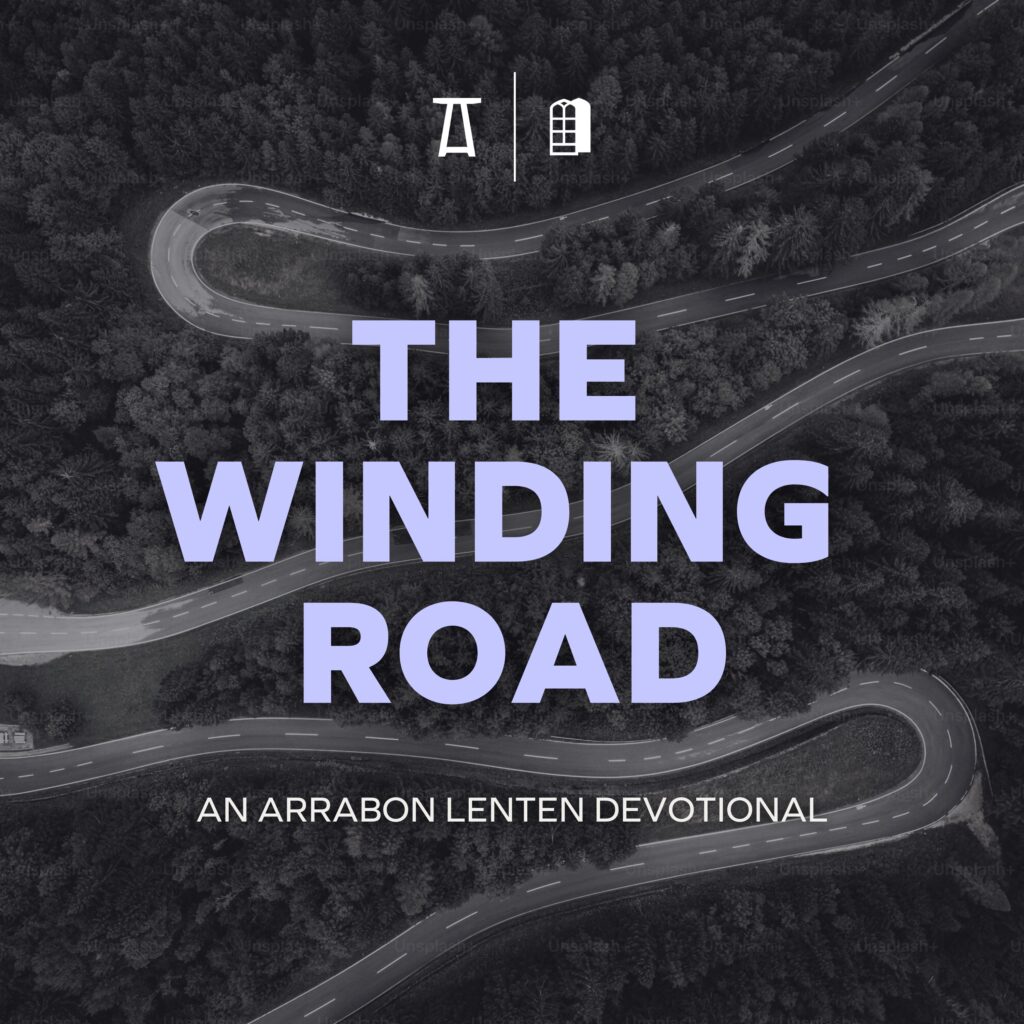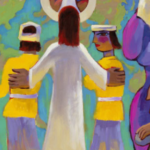We are excited to partner with CCDA Org Member Arrabon for their six-week Lent Devotional series. In the midst of a world marked by disorientation, division, and pain, this devotional will guide you along the path toward reconciliation and healing.
Each week, you’ll be led through prayer practices, Scripture reflections, spoken word, and musical art to help you embody the hope of Christ and pursue His call for wholeness in our communities. We believe this is a moment to be formed by our cross-bearing, enemy-loving, liberating Savior.
Join us this Lent as we seek the glory of God and the flourishing of our neighbors.
In fact, some parts of the body that seem weakest and least important are actually the most necessary. And the parts we regard as less honorable are those we clothe with the greatest care. So we carefully protect those parts that should not be seen, while the more honorable parts do not require this special care. So God has put the body together such that extra honor and care are given to those parts that have less dignity. This makes for harmony among the members, so that all the members care for each other. If one part suffers, all the parts suffer with it, and if one part is honored, all the parts are glad.
1 Corinthians 12:22-26 (NLT)
White light poured through the stage lights blinding my eyes as I strummed the last chord of the worship set. Then in the sea of white light, in a congregation filled with white people, I saw an older white woman beeline it to me. With speed and earnestness, she stopped me. No introduction. No exchange of names. Just a burning question poured from her mouth, “Where are you from?” I knew what she was asking. But I didn’t want to have this conversation, so I replied, “Downtown.” And after a chuckle that masked her frustration, she questioned, “But where are you really from?”
I grew up in whiteness. In my elementary school of six hundred students, you could count the number of kids of color on two hands. And like every kid – and adult – I just wanted to fit in, to belong. I wanted to stop having the conversation, “Are you Asian or Chinese?” I wanted to stop feeling like an outsider. Slowly I grew resentful of my body that marked me as “different” from the other six hundred kids. I grew ashamed of the question, “Where am I really from?”
Simply put, shame is the painful feeling of not being enough. Yet shame is not simple; it’s tricky. It hides, sneaks, and dwells in our psyches. And instinctively we hide from it, because shame makes us want to hide from ourselves. Our greatest fears and anger are often tethered to what makes us ashamed. And that feeling may arise from something we’ve done or something that has been done to us, something about us or our loved ones that we did or did not determine, a story that we have chosen to live or a story imposed upon us. But if we are all honest, all our hearts are triggered by things that make us feel the pain of not being enough. And if we are all honest, we have all tried to resolve our shame in ways that we are not proud of – probably by heaping shame, anger, and fear upon ourselves and others.
Yet Christ shows us a better way, a way teeming with resurrection life, rather than the shame of death. But if we follow after Christ, Lent must precede Easter. We must bear the courage to walk with Jesus through pain, suffering, and death to resurrection life. Rather than hiding from our shame, we must face our shame and put it to death. The question we are left with is: How?
In Genesis 3, we glimpse how God relates to our shame. Ashamed of their sin, Adam and Eve hide. But God comes searching for his beloved, and “the LORD God made for Adam and for his wife garments of animal skins and clothed them” (Gen 3:21, my translation). This poetic imagery is pregnant with meaning. We see God dignify Adam and Eve in their shame and treat them with honor. We hear of a sacrificial system in which one pours out its life to cover the sin and shame of another. And we see God calling God’s beloved out of shameful-hiding, back into Godnearness – even though it’s just for a moment. Two chapters prior, God creates humanity in God’s image (Gen 1:27). Thus, glory is humanity’s essence. But glory and honor are different; honor demands acknowledging one’s glory. In other words, to honor a person requires relating to the person in a way that is congruent with their glorious essence. So much has gone wrong by chapter three, but God reveals to us: Where humanity heaps shame, God heaps honor.
Ashamed of the question – Where am I really from? – I stared my shame in the face. God revealed to me that my shame emerged from a deeper question: Who am I really from? Shame for my body turned to resentment towards those who gave me my body. But slowly, Jesus began to teach me a new way. He taught me to heap honor where I once heaped shame. As I learned the stories of the women and men who came before me, I saw their resiliency, tenacity, and fierce hearts in the face of oppression and hardship. I beheld God’s redemptive work in the story of the men and women who gave me my DNA. Today, with profound delight and gratitude, I am honored to continue the story of those I come from. It’s a glorious gift from God.
About the Author
TJ Ono is a Japanese and Chinese American who was born in California, raised in Texas, and educated in Massachusetts. He has the heart of a pastor-teacher. From leading student ministries to teaching seminary-level Konia Greek, he has spent his career cultivating Christian communities of curiosity and wonder. He loves inviting people to ask hard questions, especially about race in America and the Christian faith. He is ordained in the Anglican Church of North America and lives in the Washington, D.C., area.
Throughout church history, the season of Lent has been an opportunity to be formed by Jesus’ journey to the cross. It is a liturgical season marked by repentance, sacrifice, and generosity.
The road to reconciliation and healing necessitates the people of God to be formed by our cross-bearing, enemy-loving, and liberating Christ. This Lent, we invite you to join Christ-followers across the country as we pursue spiritual formation for the glory of God and the sake of our neighbor.
Visit the Arrabon website for more on their work and The Winding Road.




